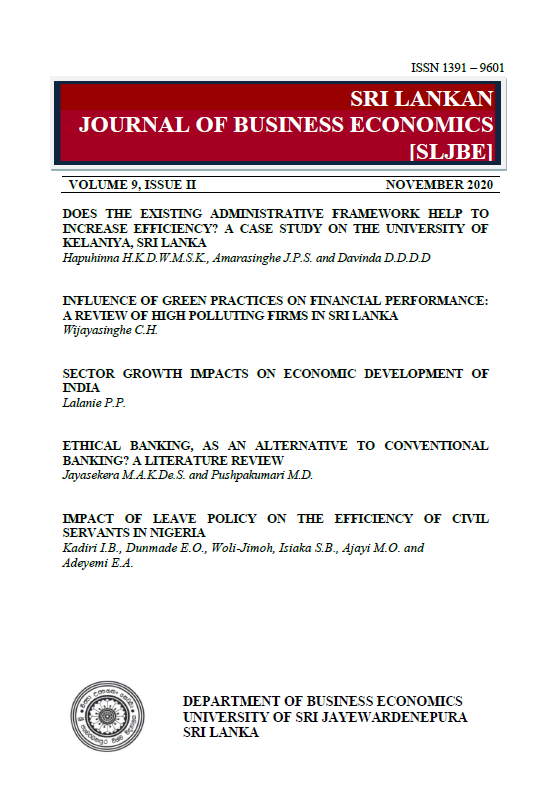IMPACT OF LEAVE POLICY ON THE EFFICIENCY OF CIVIL SERVANTS IN NIGERIA
Abstract
The study examined the effect of annual leave utilization on the productive work habit of civil servants in Kwara State. Survey design was used for the study. The population for the study is 276 officers who are responsible for job scheduling, job assignment and performance appraisal of all civil servants working in the nineteen (19) ministries and four (4) departments of the Kwara State
Government. Census of 276 respondents was adopted as the sample size for the study. Structured questionnaire was used as instrument of data collection. Descriptive and inferential statistics were employed as the method of data analysis. The result showed that the variability change in productive work habit of a civil servant is accounted for by the factor of leave policy. The study concluded that annual leave utilization has significant effect on the productive work habit of civil servants in Kwara State. It is therefore recommended that annual leave should be granted compulsory for all grade levels and enforced by the government without an option for civil servants to earn accrued leave balance.
Keywords: Annual Leave, Civil Servants, Social Wellness, Work Habit, Workers Efficiency

